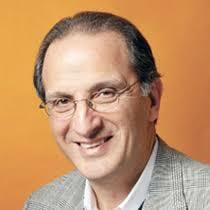As the United States prepares for what will be crucial national elections in 2024, the Arab American Institute has commissioned a survey, as it has done for the past 30 years, to better understand how Arab Americans will vote next year and what will move their votes. Because the community holds so much power in many key battleground states, how they vote and what issues matter to them are important considerations. The results of the survey showed that Arab Americans support liberal policies more than their support for conservative policies.
While both parties are losing support among Arab Americans, the majority of Arabs seem to prefer the "Democrats" over the "Republicans" when choosing the president and members of Congress. While these are the primary political findings of this new US-Arab study, the results also demonstrate that, despite the complexity and diversity of the Arab community, there are common threads that unite them. The positions are shared across all major communities in multiple areas.
For example, although the majority of respondents reported that they experienced discrimination because of their cultural heritage. This is true of all subgroups of Arab Americans, four out of five stating deep pride in their race and heritage. Despite the importance of their religious affiliations and countries of origin, the majority present themselves as "Arab-American".
In a continuation of a trend that has been observed since Arab Americans reacted negatively to the post-9/11 policies of the Bush administration, the percentage of members of the Arab community who consider themselves “democrats” - myself included - is approximately 40 percent of those who consider themselves “Republicans”. Democrats" compared to 24 percent "Republicans". The biggest changes in this year's poll are the decline in the percentage of Democrats from about 50 percent in the Obama years and the steady growth of independents, from 15 percent in 2014 to 28 percent this year.
Further evidence of this shift in partisanship can be seen in the nearly four out of five Arab Americans who expressed concern about political polarization in the United States today, nearly half of whom blame both sides for the problem. Arab Americans give President Joseph Biden a low approval rating for his job, at 31 percent, but 47 percent of Arab Americans have a favorable view of Biden, much higher than the 36 percent who had a favorable view of former President Donald Trump.
Despite their concern about partisanship, Arab Americans, by a margin of 53 percent to 30 percent, say they would prefer a Democratic control of Congress. And when it comes to domestic issues, Arab Americans, like most other American ethnic groups, show an interest in a range of liberal and centrist policy issues. The single most important issue is gun violence, and this is followed by a second level of issues such as: addressing budget deficits and government spending, job creation and economic development, and environmental and climate change concerns.
The issues of improving health care, addressing race relations, and protecting Social Security and Medicare receive a high degree of attention. Their three main foreign policy concerns, closely related and shared by three-quarters of those surveyed across demographics, are the crisis in Lebanon, the humanitarian needs of the Syrian people, and achieving justice for the Palestinians.
Two questions were asked of Arab Americans regarding their positions on restricting freedom of expression. When asked how concerned they are about “state laws or executive orders that penalize individuals, groups, or companies for engaging in activities boycotting Israel,” more than four out of five said they were concerned. Three-quarters are also concerned about efforts by school boards seeking to ban books containing black history.
What emerges from this examination of Arab American attitudes is a picture of a group that, in large part because of its own experiences in the past few decades, is more liberal and tolerant than the general American population. At the same time, they are also level-headed and oppose the extremist views that divide the country. Of equal importance is the fact that these attitudes are largely consistent across the diverse population groups that make up the Arab American community, namely age, gender, religious affiliation, and country of origin. These shared views, values, and life experiences are the hallmarks that define society and place it at the heart of mainstream American politics.
OPINIONS
Sun 04 Jun 2023 10:23 am - Jerusalem Time
How will Arab Americans vote in 2024?

Tags
MORE FROM OPINIONS
Between ballot boxes and circles of fire: The mistake of bringing Hamas into the Palestinian...
Dr. Ibrahim Nairat
This is the difference between us and them
From pampered country to outcasted
Weapon of demonstrations in support of Palestine
International positions and promising statements
Legal opinion on the recent Cabinet decision to prevent land settlement in Area C and...
Aid, Negotiations, and Threats
Baha Rahal
Unprecedented political developments
Hamada Faraana
Between Gaza and Troy
Nabhan Khreisha
Final terms of the exchange deal, the truce, and the decisive hours
Hamza Al-Bashtawi
Hussein was two minutes late to his family due to the timing of the missile.
Written by Abdul Salam Al-Rimawi
Gaza and the Collapse of the Global Moral Compass
Translation for "Alquds" dot com
Trump after the Gulf is not the same as before
Assas Media
Amid Cease-Fire Talks, Israel Says It Has Expanded Ground Operations in Gaza
New York Times
One Hundred Years of Tranquility
Strategic goals collapsed and the Palestinians found themselves in a "political Bermuda Triangle."
On the anniversary of the Nakba, confronting the truth of what happened is the first...
In the name of the burned bodies!
Issam Bakr
Silent Annexation: How Is Israel Implementing Annexation in the West Bank Without an Official Announcement?
Time of blood, death and destruction
Mustafa Ibrahim







Share your opinion
How will Arab Americans vote in 2024?